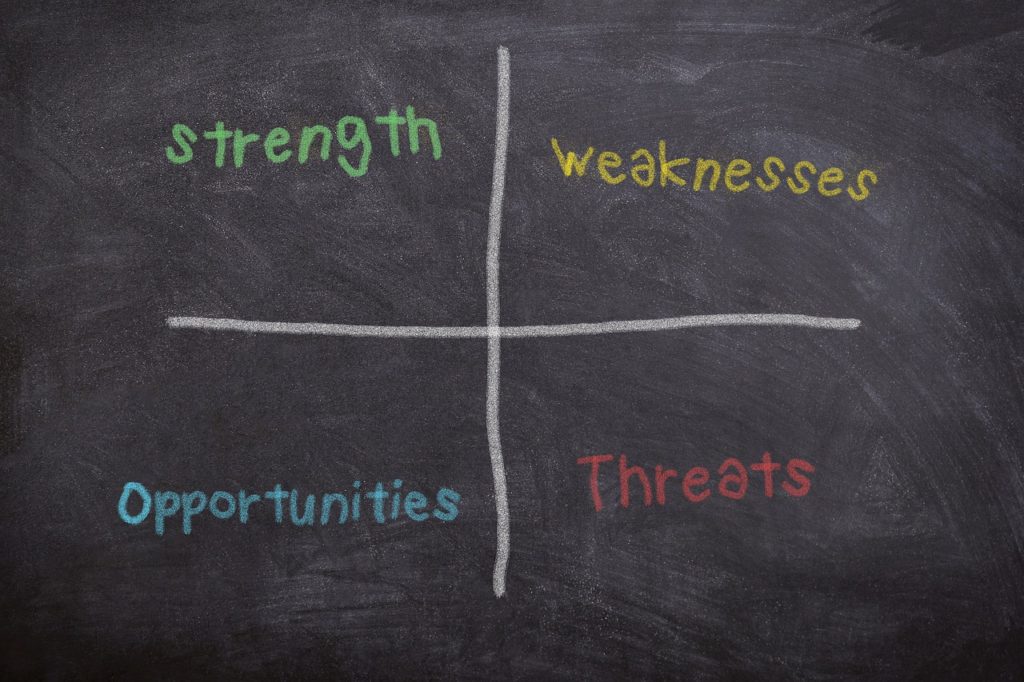Often “branding” is thought of as logos and catchy taglines. And don’t get me wrong, both are important. But your Real Estate Brand goes far beyond that. When you think of a notable brand, logos, songs, and slogans will be some of the first things that come to mind. These are all reinforced in our minds based on how the product or service made us feel on an individual level.
So when it comes to your own brand, don’t focus just on how it looks. Focus on the entire story of the brand and what you want to come to someone’s mind when they see it and experience it. Let’s do a deep dive into the 5 Vital Steps you need to take when branding your real estate business.
Right now, I want you to think about the real estate market in your community. Who is the first agent that comes to mind? Was it you? Was it someone else? If it was someone else how do you think they became so notable that you thought of them, rather than your own business? My bet is that their Branding made an impact.
Creating your Real Estate Brand means creating a distinct and recognizable market identity that your clients and prospects can use to identify and connect with you. Successfully branding yourself will ensure that you are more visible within your market, increasing the number of leads that you organically generate. Simply put, branding your real estate business is creating a reputation that precedes you.
How your Real Estate Brand can stand-out in your market
- Your brand should solve a problem or challenge of your target market
- Create niche-specific content that is compelling and sparks engagement
- Establish a strong social media presence across 1-3 social platforms
- Your content and marketing should be intentional and never “just for the sake of it”
When it comes to marketing, understand that it’s not all about “what” you are offering in real estate. It’s the perception you create to your audience on “how” you are offering it. This is what separates likes from a following. Your brand should reflect your business values and those qualities that set you apart from the competition.
Why is your brand important?
It’s one of the first things your prospects and clients will associate with you. Through branding, you have an opportunity to appeal to your clients with your business name, tagline, logo, values, advertising, online presence, and the services you provide as an agent. With this, you can unify what your business is about and send a more exact message.
Consider the story that you’re relaying with your social posts. Or how you articulate changes in the market. Everything that you create, from your logo to your bio, should align with your brand identity. Over time you will develop a following because of this identity and if you were to suddenly change its message, what impact would it have? How many brands do you follow who change their messaging often? Or how many companies do you use services and products from that can’t seem to focus on one thing? My guess is that you likely didn’t follow them for long!
Why you should dedicate time to building your real estate brand
- It creates a known-identity for your business that connects with your niche market’s challenges
- Branding is a visual way to illustrate your unique value proposition
- Branding your real estate business gives a personal touch and a sense of inclusiveness
- Your brand makes it easier to get to know you, like you, and trust you
- A good brand assures clients and gives them better clarity of what you provide
- By outlining your business values, customers perceive your authenticity.
- Customers find you more credible.
- Prospects recognize you for what you do.
5 things you must do when creating your Real Estate Brand
1) Defining your Real Estate Brand and your market niche
Brand definition
This is the first and arguably one of the most critical steps in branding your real estate business. It helps you ascertain what your brand ultimately stands for and what you plan to achieve. To properly define your brand, map out your core values, unique skills, strengths, and professional expertise.
If your brand was a person (which, really, it is!) what would your brand be associated with? You can start this process by creating a phrase that accurately describes what your specialty is.
- My Brand is an expert on….
- My Brand specializes in….
- The favorite color of my Brand is…. (it sounds silly, but it helps you figure out your brand colors!)
- My Brand is known for….
You should include words that identify your brand’s personality. For instance, is your brand attentive? Persistent? Hard-working? Remember, think about your brand as a separate entity for this exercise. It makes it a lot easier to describe and map out! Similarly, the core values of your brand will likely determine the niche that you are wanting to work with.
At the end of this process, ask yourself “Does this sound like a real business?” This is a good catch-all question to ensure that you’re being realistic about how your brand (and business) will operate.
Understand your niche market
Next, think about who your brand will serve. Ask yourself the following:
- My Brand works with…
- My Brand serves….
- This Brand is best suited for….
- The people my Brand connects with are….
When you get your answers, ask yourself again “Does this sound like a real business?” If not, look at what is conflicting in your answers. Are you leaning one way in one category and the other in the rest? Your brand needs to be aligned with the type of people that your business will serve. If it’s not, why would they use you?
After this, ask yourself how is your business going to serve this niche? Why is it best suited for it? At this point, you will start to see your brand, business, and niche aligning. Next up, A SWOT Analysis to make sure that our assumptions are backed up!

Review your Strengths, Weaknesses, Opportunities, and Threats
A SWOT Analysis is when you assess your business and its position within the market objectively. Looking at both qualitative and quantitative information. If you’re a single agent, a good resource for this is your broker who may be able to share information about your market or even you, that you may not have considered.
A SWOT analysis goes hand in hand with establishing a brand and selecting your niche. It will ensure that you’re making an informed decision before committing to marketing resources when they may be better spent elsewhere.
Check out this guide for a great breakdown of how you can do this for your own business.
For a quick summary here are the questions you want to ask yourself:
- Strengths: What are my assets as an agent?
- Weaknesses: What is holding me back?
- Opportunities: What do I see in the current market (or in the near future) that will help my brand and business grow?
- Threats: What potential obstacles do I see right now and in the future where the market may harm my business?
2) Create a Real Estate Brand tone guide
Your next move is to reinforce the brand that you’ve established by creating a brand tone guide. A brand tone guide is a benchmark you create that helps steer every marketing decision concerning your business.
The voice of your brand should answer the following questions
Who:
Is your brand?
What:
Does your brand believe in?
Does your brand stand for?
What is your vision and goals for your business?
Uniqueness does your brand bring to the table?
Problems does your brand fix or solve?
What strategies do you have in place to do this?
Why:
Do you choose to solve these problems?
Should buyers and sellers choose you?
How:
Does your brand communicate?
Make sure that you’re truly happy with the answers to the questions that you provide. Moving forward, this will be how your brand is seen. If you find that it’s all about you, and not about your clients or your community be prepared for others to view you that same way.
3) Create unique content
Develop your website and utilize social media platforms as a means to document what you do. Creating unique content projects your brand’s core values. Your digital presence is not all about listings (shocking right!). Think about the brands you engage with on social media or read blogs from. You’re there not only for the products that they’re selling but rather the story that they’re sharing. Your business should be the same. Promote listings and your services, absolutely! But don’t feel like that’s all you can promote.
Social Media
How effectively you use social media platforms will determine whether you make or break your brand. There’s a catch, though; the average person has an attention span of 1.7 to 2.5 seconds on social media. Pressure’s on right?
While it’s overwhelming for sure, what it requires is that your content is vibrant and visually appealing. Giant text-based posts on any image or video-focused platform won’t land like you want them to. Match the content to the social platform. Our advice, focus on 1-3 social platforms and stick to them. Don’t try to be everywhere unless you’ve got the resources and team to spread the workaround.

Video content
Video is one of the most effective ways to create, grow, and establish a brand.
- Stats show video marketing shows great ROI: 83% of businesses see a strong return on investment when using videos. Although you can purchase some pretty fancy equipment, it is not necessary to make a good video.
- Video marketing builds trust: Trust is essential as you build the bond with buyers and sellers. Video content is likely to engage and ignite emotions. By presenting homes in a conversational format, you will make potential clients feel like you are speaking right to them. In fact, 57% of consumers say that videos give them more confidence.
- Google loves video marketing: Did you know that Google owns YouTube? This has drastically increased the impact that videos have on your search engine rank. You are 53 times more likely to show up first on Google if you have a video on your website.
- Mobile users love videos: 90% of consumers watch videos on their smartphones. Using real estate marketing videos can appeal to potential clients who have a stronger personal connection to the content on their phones.
- Video marketing can be shared: We love sharing things on social media that make us laugh or feel good. 76% of smartphone users would share a branded video if they were entertained by it. By connecting with your community through video, your reach expands.
Optimize your website
Compelling content on your website is a must for branding your real estate business. Your website is the face and powerhouse of your brand. Post interesting content like:
- The latest real estate trends and updates
- Community events and local news
- Real estate articles
- Business Spotlights
- Blogs about your community and its features
- Customer feedback and testimonials
Your website is one of the best ways to capture leads for your business. Pro Tip: Don’t just create a real estate specific website, expand into community content to expand your audience, and generate more leads for your business!
4) Consistency
Consistency here means implementing your values and ideals into your brand in everything you do. Your brand should remain constant, whether through print or online marketing and even through your conversations with your prospects and clients. If you are constantly changing your message, do you think anyone will be able to listen?
From how you want to be perceived by homeowners and potential buyers to how you speak to a prospect during a listing presentation or in your follow up your message must be the same. Strive to be genuine, honest, and true to what you stand for. Purchasing a house is one of the largest investments an adult makes. If you aren’t authentic, chances are people won’t want to make such a big investment with someone they perceive as untrustworthy and unreliable.
Create a seamless client experience and consistency all through the home buying or selling process.
Pro Tips: Creating a Consistent Real Estate Brand
- All marketing materials must have the same logo.
- Choose the voice/persona you want your brand to emulate and use it!
- The goal of promoting and advertising your brand should not contradict your main message.
Remember, repetitive business strategies are not the same as consistency. Switch up your materials now and then, pay attention to your content, introduce fresh ideas seasonally. The end game should be every message you pass across is on track with what your brand stands for.
5) Incorporate Technology
Technology in Real Estate is ever-evolving. As a result, Realtors are too! If they’re not, they often find that in a few years their business begins to drop. They’re labeled as “old school” or “out of date” as they cannot provide the same offerings as those who have embraced new tools.
Since using technology affects all areas of real estate these days, it can provide more innovative opportunities while building a brand.
How should Realtors utilize technology?
Most home buyers and sellers are doing their research online before they even speak to a real estate agent. The next step for the homeowner or prospective buyer is to pick a realtor based on 3 things. Trust in them. Trust in their brand. And of course, trust in what the real estate agent can offer.
By embracing the use of follow up tools, you can connect with more people, answer more questions, and serve more effectively. It starts with a CRM (customer relationship management tool). Your CRM will allow you to organize your entire database, schedule follow-ups, and send emails en masse.
Next, calendar booking software. If you control your calendar, you’ll control your income. Be sure to invest time, daily into maintaining your calendar. You must have tabs on which appointments you have that week. And of course, blocking out time for your three core activities; prospecting for new business, working with current clients, and nurturing your database.
On top of that, there are tools from IDX Listings Searches to Hello Bars on your website, to automatic dialers. Find the tools that you will USE and get the most value from, allowing you to better serve and nurture your contacts.






![15 Essential Real Estate Apps To Save You Time [2023]](https://localleader.com/wp-content/uploads/2017/06/shutterstock_575663935-440x264.jpg)